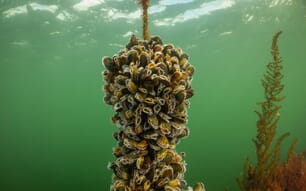Shivakumar said that a study conducted by his team in Mandya and Shimoga districts has shown improvements in productivity of crops such as paddy and sugarcane.
Speaking with HinduBusinessLine on the sidelines of the inauguration of a 21-day winter school on “Reclamation of saline and alkaline soil through aquaculture” in Mangalore, Shivakumar said he had conducted “feeler trials” in some villages between 1998 and 2006.
During 2007-2012, his team conducted a study under the Rashtriya Krishi Vikas Yojana in 258 villages in Mandya and Shimoga districts.
Quoting his study, Shivakumar said there was an average increase in the yield of paddy by 0.4-0.6 tonnes a hectare, and sugarcane by 8-10 tonnes a hectare.
The yield of coconut increased by 18-20 nuts a tree. Fish production increased to 1,536 kg a hectare, he said.
Many researchers have opined that aquaculture significantly increases crop yields in adjacent lands, he said.
According to Shivakumar, soil in most regions has become alkaline and saline because of the continuous use of the land for same agricultural activity and because of the excessive use of fertilisers and water. This affects crop yields in such regions.
Terming aquaculture as the solution for such problems, he said excess salt gets into impoundment. The management of soil is easier in water than in the soil. Due to high organic inputs in aquaculture such as feed, manure and continuous deposition of faecal matter, the alkaline or saline contents get reduced. Soil can be put back into original form over a period of time, he said.
Shivakumar suggested that 5-10 per cent of agriculture land should have a pond for taking up aquaculture.

